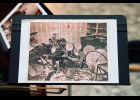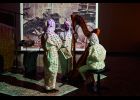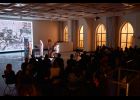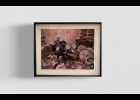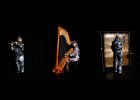“We shall be your favorite disappearing act!” / Clare Strand, Playing a Photograph
This essay discusses the intellectual foundation of the research group Thinking Tools at the Royal Academy of Antwerp. Established within the photography department at the Academy, the research group quickly decided to mainly support research into experimental photographic practices that radically question existing presuppositions. It starts from André Bazin's contention photography is the only way we can enjoy the absence of the human hand in the production of an image and goes on to explore how this theme of absence has become a guiding principle for the research group. The writings of Vilém Flusser on photography introduced us to the concept of the apparatus and to the photographer as an operator. These allow us to critically rethink the idea of photography as a simple instrument of image making. For a better understanding of the sovereignty of the camera we turned another thinker inspired by Flusser, the French photohistorian Michel Frizot. His definition of photography as the conjunction of an optical and a chemical system helped us to grasp in more concrete terms how photography radically differs from other existing art forms. Combining the theoretical positions of Flusser and Frizot gave us a robust framework for the 2021 publication Off Camera which set out to demonstrate how the concept of ‘the photographic’ expanded into the larger realm of the visual arts. The essay concludes with a discussion of two artists whose work could illuminate how this concept of ‘the photographic’ is at play in contemporary art.
Clare Strand’s “Playing a Photograph” is a telematic dialogue between a photograph and musical performers from the Royal Conservatoire (https://vimeo.com/773269239/c934f6a17a).
O tradutor e a janela: Entre o método e a prática
This paper addresses the issue of how to use translation as a method to understand archives. To this end, this paper proposes an intersection between Vilém Flusser’s reflection about his own writing method and the artistic experience of Mabe Bethônico as translator of the archives of the geologist and geographer Edgar Aubert de la Rüe.
Post-History, technical images and freedom in times of barbarism
Amongst the various media theorists who emerged in the last century, Walter Benjamin and Vilém Flusser are unquestionable references in regard to issues related to the narratives and the world of images. In addition to thinking about media devices and apparatuses beyond technical objects, both Benjamin and Flusser considered media images as concepts that articulate new epistemological and ontological views of the world.
On the other hand, it is possible to identify in both theorists thought processes that engage the concept of history with different perspectives. In line with critiques of a universal and hegemonic history, and without falling into an apologetic discourse about a presumed end of history, these authors offer us fresh perspectives in relation to historicism through a fruitful dialogue with the realm of technical images.
Post-history, technical images, and freedom in times of barbarism focuses not only upon contributions by Walter Benjamin and Vilém Flusser, but the article also examines the curatorial perspective of Arquivo Vivo, showcased at the Paço das Artes, in São Paulo, in 2013. This exhibition highlights the central position of art in the production of knowledge about images, history, and narratives within the framework of contemporaneity.
